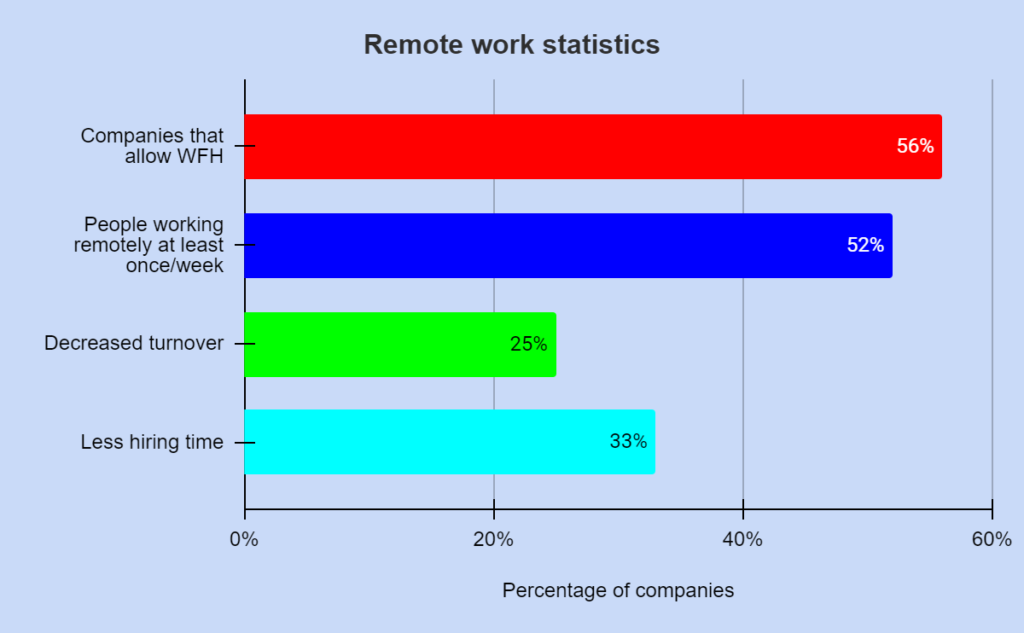Following the COVID-19 pandemic, workplace learning is emerging as one of the earliest and hardest-hit business activities. “Based on our observations as of early March, roughly one-half of in-person programs through June 30, 2020, had been postponed or canceled in North America; in parts of Asia and Europe, the figure is closer to 100 percent” — McKinsey. So, what is the response of the senior management of HR? Well, the answer from global HR VPs is pretty straightforward — no organization can depend on short-term crisis management. The pandemic is here to stay, and the impact of COVID-19 on the new normal is becoming increasingly apparent. The freshly adjusted corporate training strategies have to consider the long-term repercussions.
Read More: Workplace Learning in 2021 | It is the Worst of Times, It is the Best of Times!
In the current scenario, HR VPs must review the impact of all changes on the training policies on talent retention and skills absorption that will work in the long run. This need to be checked now as well as at regular intervals. This strategy will ensure that you gain as much benefit as possible during the restart of the economy. Companies that are agile in adapting to crises have the scope of sustaining themselves even if the pandemic lasts for several years in the future. Indeed such organizations could build a market advantage that will last for several years.

Table of Contents
Impact of COVID-19: How Has the Pandemic Impacted Your Approach to Workplace Training? What Are the Measures that You Should Take?
One of the common trends that have emerged in the corporate landscape is working from home. Research suggests that the frequency with which people worked from home before the pandemic will increase once offices reopen. Others who embraced this concept only during the pandemic will soon witness a significant upswing in their adoption rates. Estimates say: “We will see 25-30% of the workforce working at home on a multiple-days-a-week basis by the end of 2021.” Here are some more numbers to prove this:

Well, with this transition, it is a no-brainer that corporate training needs to embrace the shift toward virtual, digital sessions. The focus should remain on designing strategies to cope with the persisting uncertainty. Innovations in cloud technology enable the different planning exercises to come together in ways that weren’t previously possible.
Read More: SaaS-based LMS or On-Premise LMS. What Makes Sense?
But Before Making the Shift to a Virtual Training Model, Have You Created Your Cross-functional Team Yet?
You must get together a cross-functional response team to design a full-fledged framework for your digital workplace learning environment that adapts to the changes. This group should include all relevant stakeholder groups such as HR business partners, learning-delivery personnel, IT and platform technologists, and vendors. Build a network that connects the team to your organization’s overall COVID-19-response effort. Underline the decision points and maintain transparency while deciding on workplace training programs. Identify communication channels so that these new changes are related to the entire company, locally or centrally.
Read More: 5 Trends Companies are Adopting to Prepare for the Post-pandemic Workplace.
Now, you cannot design digital footprints for everything. Research on how to create a portfolio of workplace training offerings. Set priorities and select those areas that will require a digital-only format. And remember to be strategic about the allocation of scarce design resources. Decide the metrics — which subjects are critical? Which areas demand changes with immediate effect? How many employees will be affected? Give priority to must-have programs like employee onboarding and disseminate knowledge on essential topics like remote-working, remote-management, and leadership skills.
The Growing Importance of the Cloud
The pandemic has witnessed a surge in the usage of cloud technology when it comes to planning workplace training within organizations. Cloud providers have proven to be a vital asset in accelerating the adoption of digital learning methodologies and enabling HR VPs to make quick decisions based on changing information. As per PwC, the global management continues to “move forward with their digital transformation investments, while 70%* are making changes to their financial plans. Best-in-class executives will use digitization to connect the planning exercise to the application of scenario analysis.”

After all, you cannot spend months on launching and deploying a Learning Management System for workplace training. A SaaS-based LMS like PlayAblo is quick to install. Why? It ditches lengthy time frames to launch online courses and corporate learning. Again, a SaaS-based LMS does not require you to install or build out from scratch. Why? The whole infrastructure is already in place. Therefore, if you need a quick deployment time, you can use a Cloud-based solution, which translates to savings in resources and money.
Additional Pointers When You Are Designing an Online Workplace Learning Model
When you go for eLearning, your learners do not have to sit in one place to complete workplace training courses. Additionally, they can productively use the precious hours spent earlier away from their workstations to attend training sessions. eLearning enables learners to choose flexibility and choose courses per their choice and pace.
Now, when you select an eLearning vendor to help you address the crisis, make it a point to opt for one that gives you the option to reuse old content. As we mentioned before, you cannot digitize everything within a short time frame. Therefore, it can repurpose the existing, critical training material to suit the current workplace training needs. Repurposing saves a lot of time for organizations as they can roll out training programs quickly. Content revamping is exceptionally effortless with modern authoring tools available in the market. Finally, methodologies like microlearning and mobile-optimized workplace training deliver learning in chunks, saving time for the busy learner.
Ad: PlayAblo’s Enterprise-Grade Micro-Learning platform is for the modern corporate learner. Moreover, micro-Learning, along with assessments and gamification features, ensures learning outcome measurement along with sustained engagement.
Find out more and request a custom demo!
Again, your strategies must consider the long-term repercussions. Hence, you might be sceptical about the high development costs involved in setting up eLearning modules. But remember. The short-term expense far outweighs the long-term benefits. Traditional instructor-led training uses up vast chunks of the training budget in the long run. eLearning reduces overall training times, translating into increased productivity and profitability. Moreover, incorporating eLearning in the corporate learning process minimises the total development cost by doing away with all of the steps mentioned earlier. Since everything is online, you avoid the expenses involved in one-on-one facilitation.
Read More: Cost of an Enterprise LMS. What is a Fair Price?
Finally, go for a platform that offers the scope of uniform training with full tracking. When you track employee training progress, you have a clear synopsis of your learners’ progress along the learning curve. The correct numbers will give you a bird’ eye view of where learners are getting stuck in their learning journey and which training materials are ineffective or obsolete. Gradually, use the data to improvise your training programs and enhance the learning experience to create a rich learning culture in your company.
Read More: Remote Learning in The Post-Pandemic Workplace
Conclusion
At PlayAblo, we are work closely with our customers to help them respond to COVID-19 and prepare for the new normal. Our experts hold the extensive experience needed to guide them in designing a comprehensive online training program that addresses the complex challenges arising out of the crisis and how to make the transition from the traditional ILT to eLearning. Think we might be able to help you? We are just a ping away!
Ad: PlayAblo’s Enterprise-Grade Micro-Learning platform is for the modern corporate learner. Moreover, micro-Learning, along with assessments and gamification features, ensures learning outcome measurement and sustained engagement.
Find out more and request a custom demo!







Comments are closed, but trackbacks and pingbacks are open.